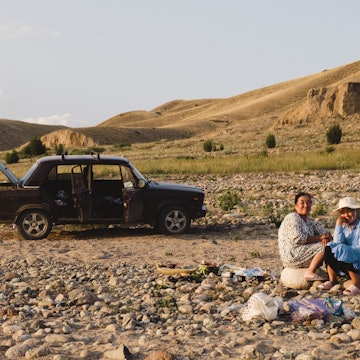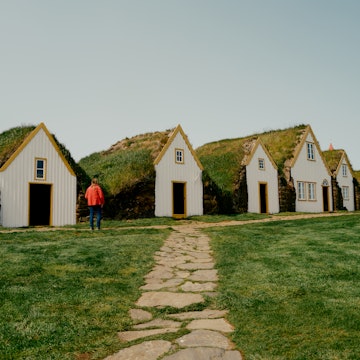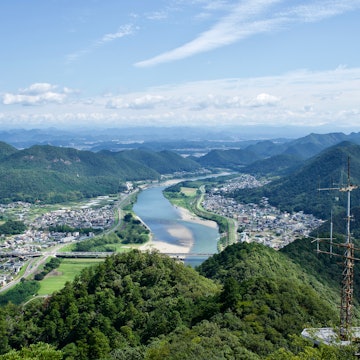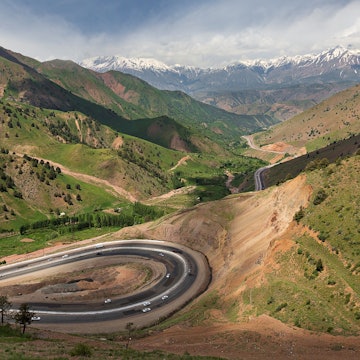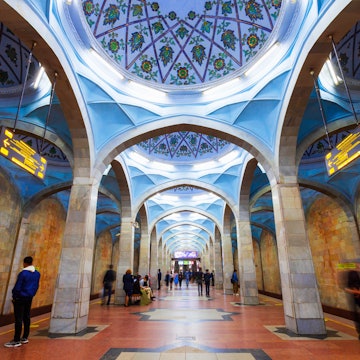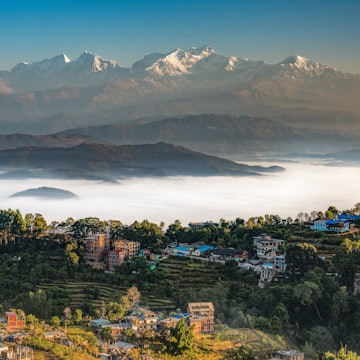

Aboard the night train, Kazakhstan. Quentin Boëhm
Alternating between steppes that lead dreamers into the wild, and bustling, flashy cities like Astana and Almaty, Kazakhstan is a country that always has something new to reveal.
The distances are enormous in the ninth-largest country on Earth – and the transport options numerous. Count on a mix of trains, cars, buses and even horses to take in the vast and varied landscapes here.
This isn’t a country made for walking.
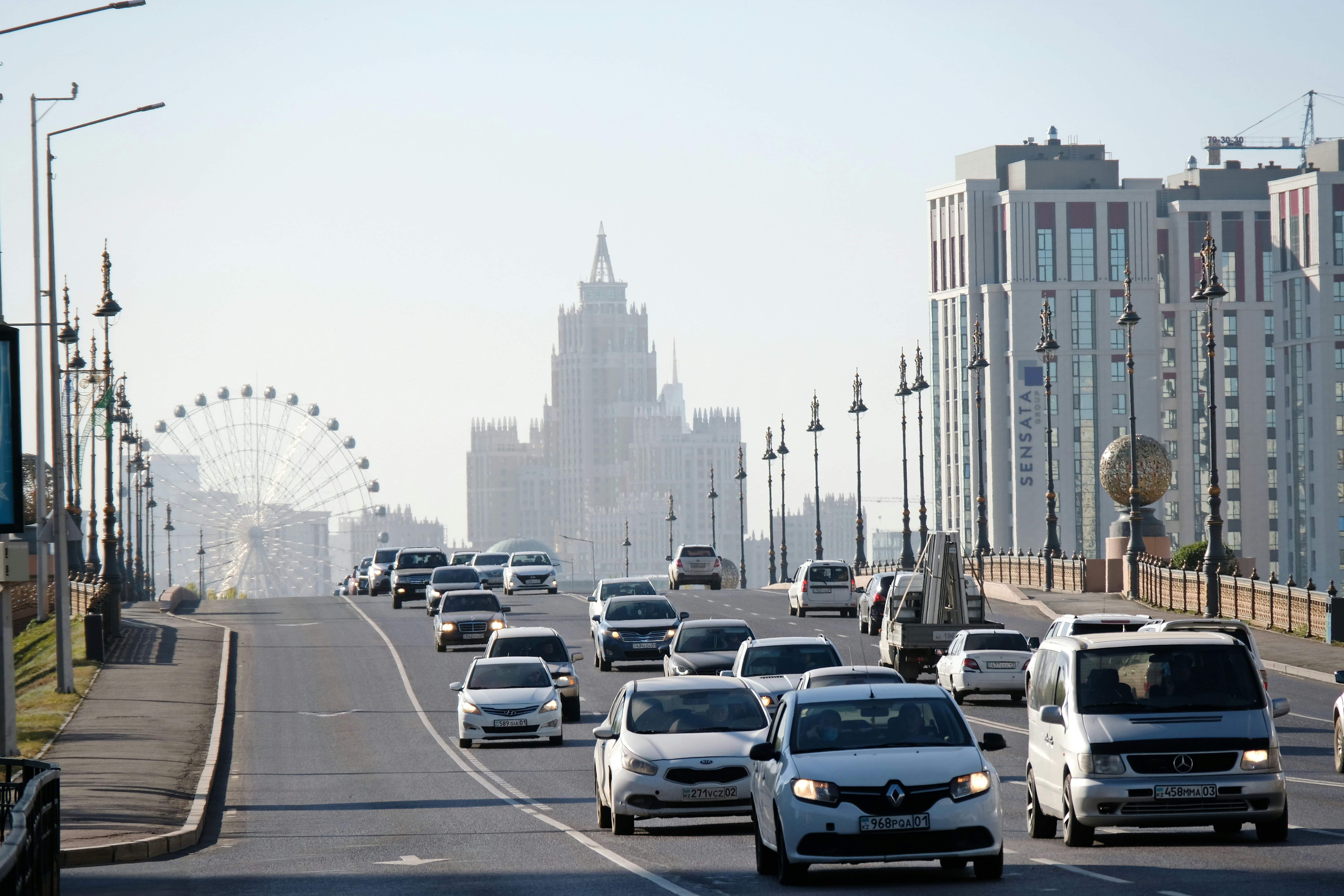
In urban centers, opt for public transport or taxis
Cities like Astana and Almaty as well as Aktau, Aktobe and Shymkent have reliable city bus networks. In the current and former capital, such buses have liveries that easily mark them as public transport. In Almaty, you can swipe a prepaid transport card and enjoy a 110 tenge fare (vs 220 tenge for paying in cash). A one-month transport pass for 7500 tenge will get you unlimited rides on buses and the city’s small metro. (Though quite beautiful, the single-line metro is more useful to local commuters than tourists, as it serves the center but not the south of the city, where many restaurants and hotels are located.)
In smaller cities, as well as on the outskirts of the bigger ones, you’ll also find marshrutkas, private minibuses seating between 15 and 30 people that run on a less reliable schedule than their official counterparts. Don’t shy away from a marshrutka ride – although do be prepared to be subjected to the driver’s personal taste in music, and try to avoid the seats in the back half of the bus, which are over the wheels and have reduced leg space.
If you need to get somewhere fast, take a taxi or book a car with Yandex, a Central Asian rideshare app. If you don’t speak Kazakh or Russian, you won’t need to worry about explaining where you want to go, and the price (payable by cash or card) is fixed before booking. Popular journeys, such to and from the airport, a border crossing, a ski town or a well-known tourist destination, feature fixed prices. In Astana, expect to pay 3500-4500 tenge for a ride to the airport; in Almaty, 2500 tenge. To reach the ski town of Shymbulak from Almaty, you’ll pay about 2100-4000 tenge each way.

For the long hauls, take a train
Kazakhstan's swaths of steppe are best appreciated from the window of a train. All the country’s major cities offer rail connections, with the night trains a particularly fun experience.
The train stock ranges from vintage to relatively modern, and it’s possible to check which model train you’ll be taking when you book online using the official booking website. Around holidays like Nauryz or in the high summer season, it’s best to book a week or so in advance.
Tip for night trains: Seats on the bottom bunk of sleeper trains are usually booked more than a week in advance. Travelers seek them out because you can both sleep and sit upright in these bunks. Plus, they offer easier access to the common baggage storage just underneath.
Consider intercity or even international buses
For short rides between cities, such as between Astana and Karaganda, grab a marshrutka. But a coach can now get you even further – much further – with comfortable large buses now connecting Almaty with Bishkek, and sleeper buses between Almaty and Ürümqi, capital of Xinjiang, China. Visa rules for China have been relaxed recently, allowing many passport holders to enjoy a two-week, visa-free stay in China. Kazakhstan makes for a perfect stop on this long-haul overland route.
Tip for taking buses: Do marshrutkas have a set timetable? Some do and some don’t, depending on supply and demand. Some destinations have only a few buses a day; others have multiple per hour, which depart once they’re full. To find the most accurate times for specific marshrutkas, head to the bus station. Swing by the station the night before to confirm the departure time for any long-haul bus.

In the wild, rely on four wheels – or four hooves
The wild emptiness of the Kazakh steppe or the far corners of the Altai Mountains cannot be reached by public transport. Renting a car is best done through a local travel agency. If you’ve decided to drive yourself – likely to go somewhere truly remote like the Ustyurt Plateau – be sure to rent something appropriate, namely a 4x4. If you aren’t sure you’ll be able to tackle the route, consider hiring a driver with a car. A starting price point per day for a driver will be around 83,000 tenge – but be aware you’ll also need to pay for your driver’s food and lodging if you set out on a multiple-day trip.
To reach remote and lush corners of the mountains, especially near Almaty but also in the Altai range to the east or to visit the Aksu-Zhabagly Nature Reserve near Shymkent, prepare to saddle up. The Kazakh are proud horsemen and will take you out for the ride of your life. Plan about at least 22,000 tenge per day for a horse to ride along with a guide on horseback. Rides usually come as part of a package that includes guesthouse stays, transport and meals, and which start at 33,000 tenge per day.
Accessible transportation in Kazakhstan
Public transport in Kazakhstan is not the most comfortable option for travelers with disabilities: train corridors don’t fit a wheelchair, and buses are also not equipped with lifts. Some trains offer two-person carriages (at a supplemental cost) for extra privacy or space. Buses, especially marshrutkas, can be crowded and hot. For travelers who need accommodation outside the services offered, the best bet is to organize private transport in cities through Yandex, or with a private driver for longer hauls.







